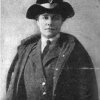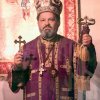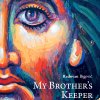Family
Ruth Stanley Farnam was born at Patchogue, New York, the daughter of William Henry Stanley and Ida Jay Overton Stanley. She married Charles Henry Farnam and later, Baron Raymond de Loze.
War work
She originally served as a volunteer nurse in a medical unit attached to the Serbian army. She was present during the Battle of Brod and, when a soldier asked if she was afraid, answered: "Do you think I am scared? I have never lived before". After this, she was allowed to enlist in the Serbian army as a volunteer soldier.
In 1918, she published her autobiography, A Nation at Bay: What an American Woman Saw and Did in Suffering Serbia. She died in 1956, aged 83 years.
From: Wikipedia





